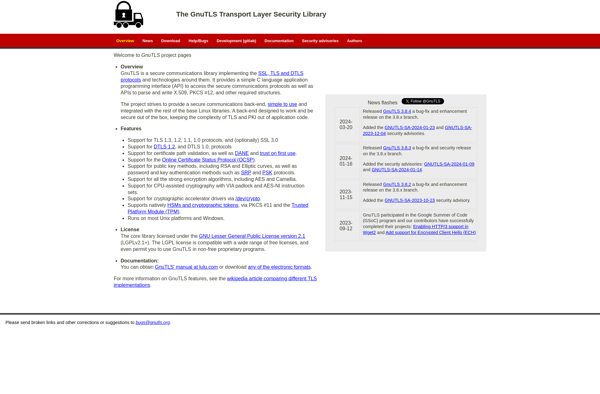LibreSSL

LibreSSL: Free and Open Source Cryptographic Library
LibreSSL is a free and open source cryptographic software library, forked from OpenSSL in 2014 after the Heartbleed vulnerability was disclosed. It aims to be a modern, efficient, and secure replacement for OpenSSL.
What is LibreSSL?
LibreSSL is a free and open-source cryptographic software library that was forked from OpenSSL in 2014 by OpenBSD developers after the Heartbleed bug was publicly disclosed in OpenSSL. The goal of LibreSSL is to provide a modern, efficient, and secure replacement for OpenSSL.
Some key facts about LibreSSL:
- Developed by OpenBSD developers in response to OpenSSL's security issues and lack of maintenance
- Focused on simplifying the codebase, improving security, and applying modern practices
- Removes substantial amounts of unnecessary code from OpenSSL while retaining API/ABI compatibility
- Significant emphasis on writing clean, auditable code that is easy to review
- Supports most major features needed for compatibility, including TLS, X.509 certificates, and various cryptographic algorithms
- Used as the default SSL/TLS library in OpenBSD, and available for other Unix-like systems
While LibreSSL does not yet offer 100% feature parity with OpenSSL, it offers a relatively compatible and substantially more secure alternative that is suitable for most cryptography use cases. The OpenBSD project provides stable releases that are widely portable. Major Linux distributions like Debian and Ubuntu have also adopted LibreSSL as an alternative to OpenSSL.
LibreSSL Features
Features
- Fork of OpenSSL created in response to Heartbleed vulnerability
- Focused on modernizing the codebase and improving security
- Removes unused legacy code and features from OpenSSL
- Simplified build system and configuration
- Supports TLS, SSL, cryptography and X.509 certificates like OpenSSL
Pricing
- Open Source
Pros
Cons
Official Links
Reviews & Ratings
Login to ReviewThe Best LibreSSL Alternatives
Top Security & Privacy and Encryption and other similar apps like LibreSSL
OpenSSL

GnuTLS

Mbed TLS

WolfSSL

SharkSSL
